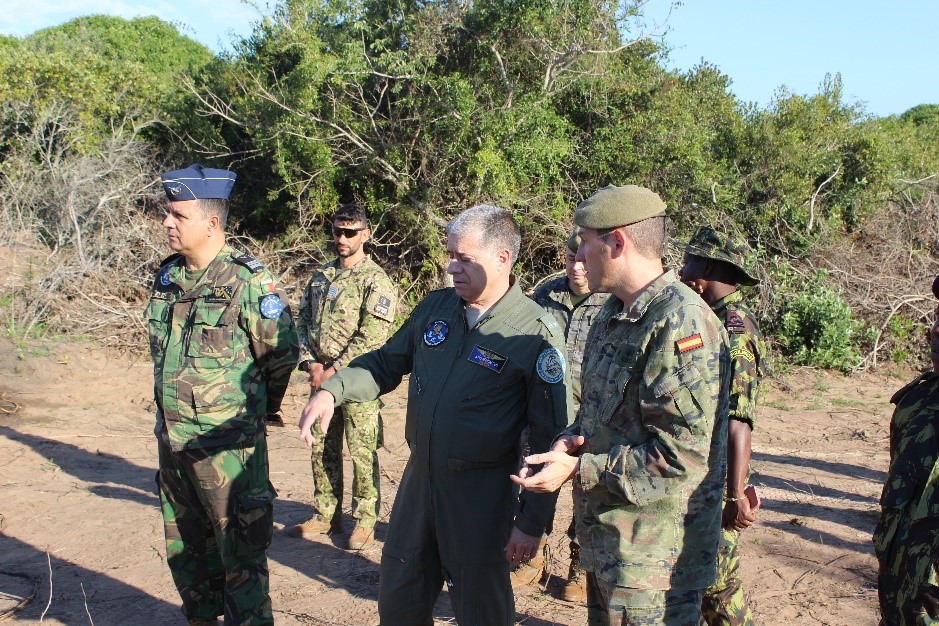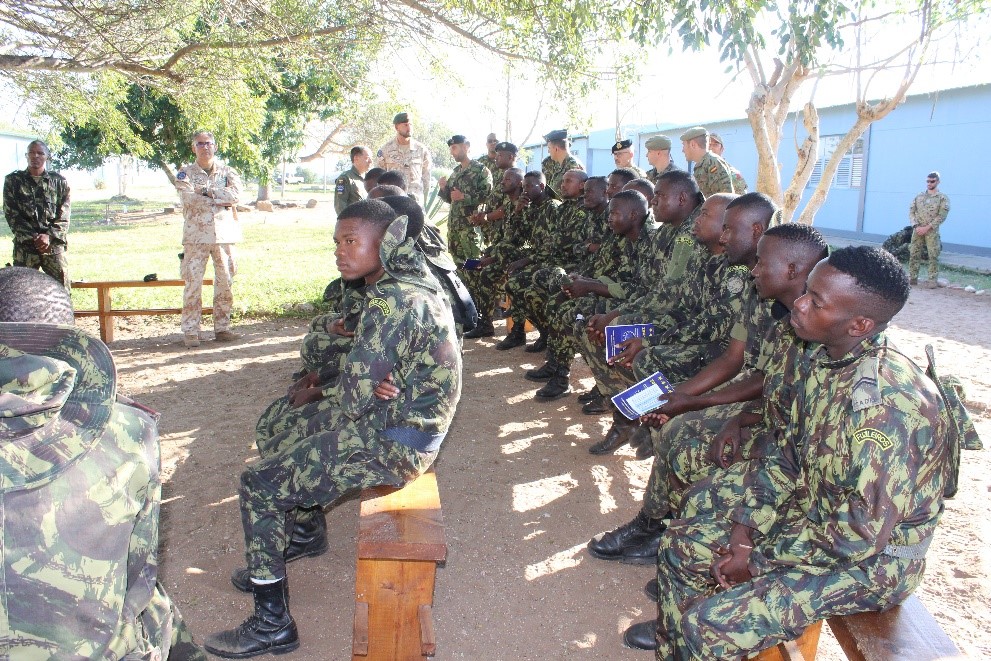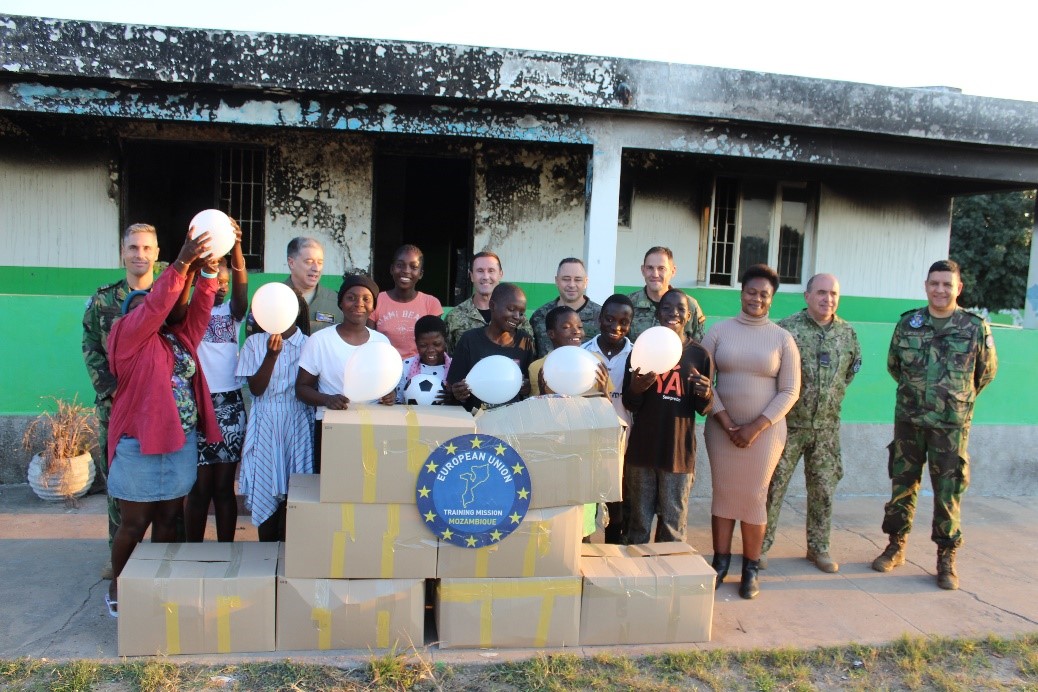
Ongoing operations
EU mission in Mozambique changes its focus and name
Maputo, Mozambique
July 8, 2024
- As of 1 September it will be renamed EU Military Assistance Mission Mozambique (EUMAM Mozambique).
The Council of the European Union approved in 2021 the European Union Training Mission (EUTM) Mozambique, with a duration of three years until 2024, with the main objective of training and supporting the Mozambique Armed Defence Forces (FADM) in the protection of the civilian population and the restoration of security in the province of Cabo Delgado. The mission has focused on strengthening the tactical and operational skills of Mozambican troops, implementing train-the-trainer programmes and providing logistical and strategic support.
During this time, EUTM Mozambique has conducted numerous training activities in various training camps, including Katembe, Dongo and Mavalane. In addition to military trainers and advisors, the mission included the participation of two Spanish observers.
EUTM Mozambique has made significant progress in professionalising local forces, but the persistent insurgent threat and the need for a more adaptive strategy have led to the creation of the new mission, the European Union Military Assistance Mission in Mozambique (EUMAM Mozambique), which will start in September 2024.
The transition from EUTM to EUMAM Mozambique is a strategic step to ensure that the progress achieved is maintained and further developed. This transition, approved by the Council of the European Union, will take place between June and September 2024.
EUMAM's new approach aims to better integrate training capabilities within the organisational structures of the FADM, ensure effective coordination and continue to provide the necessary support to counter insurgent threats. This change also includes redeploying resources and updating training plans to align with the current needs of the security environment in Mozambique.
EUMAM Mozambique focuses on a comprehensive approach to support the FADM in developing and enhancing capabilities that will increase the sustainability of the trained Rapid Reaction Forces, enabling them to operate autonomously and effectively in the Cabo Delgado region, in compliance with international humanitarian law (IHL) and human rights (IHRL).
The mission has three main tasks: to advise the FADM in the development and implementation of its own doctrine, to provide specialised training, and to monitor EU-trained Rapid Reaction Forces. EUMAM will continue the training programmes initiated by EUTM, but with a greater emphasis on capability integration and the creation of sustainable operational structures.
The two Spanish observers who participated in EUTM will remain in EUMAM, ensuring continuity and contributing their experience gained in the previous mission. The mission will also seek to strengthen cooperation with other international and local actors, ensuring a cohesive and coordinated approach to improving security in Mozambique.
The transition from EUTM to EUMAM is a vital step in strengthening the response capacity of Mozambican forces. The new mission focuses on more integrated and sustainable training, with the aim of effectively addressing insurgent threats and ensuring long-term security in the region.
The EU's continued support to Mozambique, through the transition from EUTM to EUMAM Mozambique, is expected to establish security conditions in Cabo Delgado conducive to its prosperous development.
The EUMAM mission, approved by the Council of the European Union, will start in September 2024 and will focus on developing and improving the capabilities of the Mozambique Armed Defence Forces (FADM). The SAF is instrumental in strengthening the multilateral system, both general and regional, which allows for a coordinated and effective response to future regional threats and crises. In an interdependent world, it is necessary to join efforts to ensure our security and the rules-based international order through our participation in international organisations such as the UN, NATO, EU and OSCE. This comprehensive and tailored approach will ensure a more effective response to insurgent threats, promoting a secure and stable environment that will facilitate growth and prosperity in the region.
Fotos




